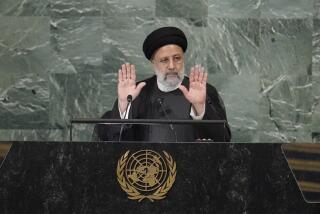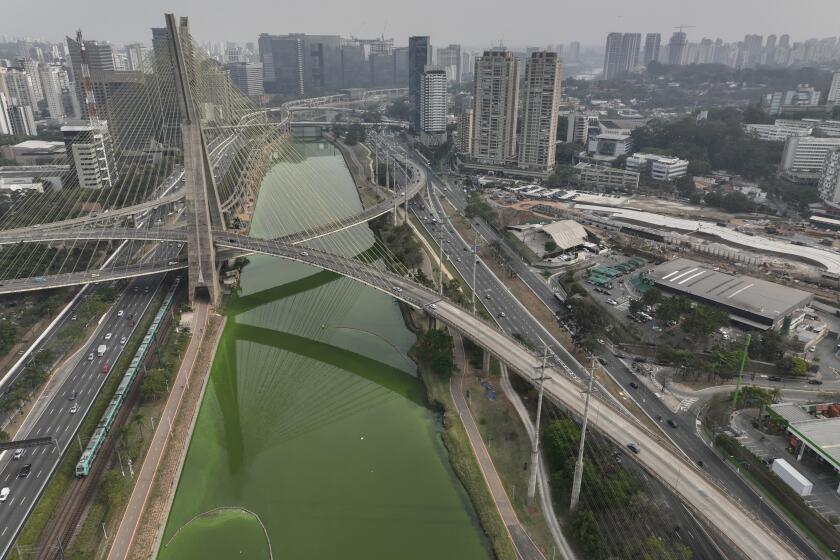Iran Receptive to Nuclear Proposal
MOSCOW — A high-ranking Iranian official concluded two days of talks in Moscow on Wednesday, offering praise for a possible Russian compromise aimed at defusing the international dispute over his country’s nuclear program but reiterating a threat that Iran might launch a large-scale effort to enrich uranium.
Ali Larijani, secretary of Iran’s Supreme National Security Council, said his country held a “positive” attitude toward Moscow’s proposal to let Russia enrich uranium and return it to Iran for use in reactors there. The proposal is aimed at easing Western concerns that Iran might use enrichment technology to build nuclear weapons.
But Larijani also repeated a warning that his government would launch industrial-scale enrichment if the International Atomic Energy Agency, the United Nations’ nuclear watchdog, sent Iran’s case to the U.N. Security Council.
The 35-member IAEA board is scheduled to hold an emergency meeting Feb. 2 in Vienna to consider whether to send the issue to the Security Council, which could impose political and economic sanctions, or to delay while Moscow pursues a deal.
Russia and China, which Larijani is expected to visit today for meetings with top officials, are permanent members of the Security Council and have expressed reservations about imposing sanctions.
Referral would have “a negative impact on peace and security in the region,” Larijani, who is also Iran’s top nuclear negotiator, said at a news conference in Moscow. “In this case, our activities will not be limited to research, and we’ll begin industrial enrichment of uranium.”
Iran’s senior envoy to the IAEA, Ali Asghar Soltanieh, was reported to have issued a similar warning Monday in Vienna.
Although Iran has the ability to enrich small quantities of uranium as part of a research program, it is not known to be able to do so on an industrial scale.
Uranium is enriched to make it usable in nuclear power plants, which is what Iran says it intends to do. However, a higher level of enrichment can produce material for nuclear bombs. The United States and other Western governments suspect the Iranian nuclear program is aimed at developing such weapons, not simply at energy production.
The Russian enrichment proposal would take the most sensitive part of the fuel cycle out of Tehran’s control while still protecting Iran’s right to nuclear energy. Larijani was in Moscow partly to discuss that possibility.
“Our attitude to the proposal is positive,” he said at the news conference, the Russian news agency Interfax reported. “The plan can be fine-tuned in the future during the talks due in February.”
Russian officials have said the next talks on the proposed joint venture will be held in mid-February, days after the IAEA’s emergency meeting.
Russian President Vladimir V. Putin discussed an expanded version of the idea in comments Wednesday to reporters in St. Petersburg. He urged the creation of an international center in Russia to provide nuclear fuel services to other countries, Interfax reported. Such a center would be supervised by the IAEA and serve all countries, he said.
Mohamed ElBaradei, head of the IAEA, endorsed such an idea during a visit to Moscow in October, arguing that the most effective way to stop the spread of nuclear weapons was for the international community to guarantee a supply of nuclear fuel to countries that agree not to produce it themselves.
Such an approach could undercut the argument of countries such as Iran that the ability to produce their own nuclear fuel is the only way to shield a civilian energy industry from disruptions in supply, ElBaradei said.
More to Read
Sign up for Essential California
The most important California stories and recommendations in your inbox every morning.
You may occasionally receive promotional content from the Los Angeles Times.










